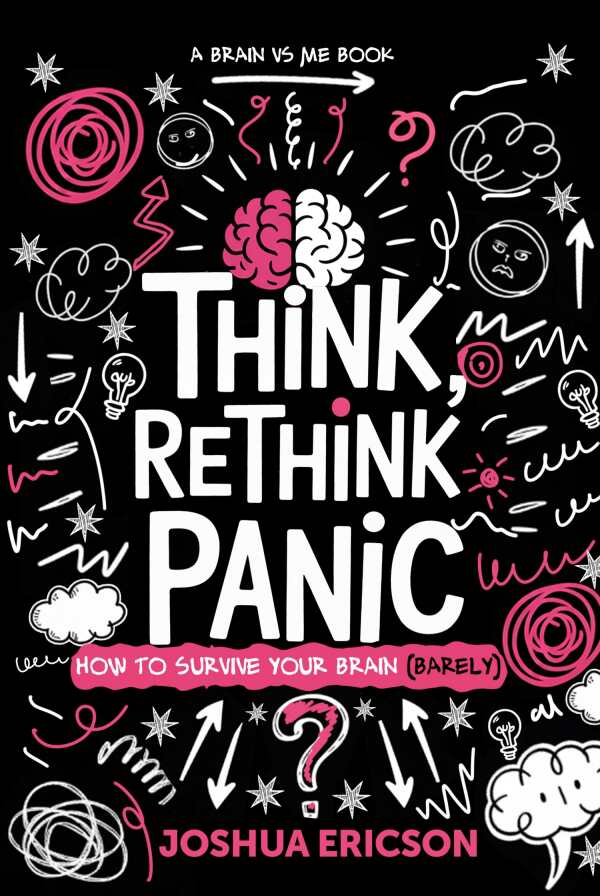
Think, Rethink, Panic
How to Survive Your Brain (Barely)
The intimate self-help book Think, Rethink, Panic investigates the anguish of anxiety in a multitude of scenarios and offers hope for a way forward.
Joshua Ericson’s lighthearted memoir–cum–self-help book Think, Rethink, Panic is about the circuitousness of overthinking.
Ericson laments that from the moment he wakes up until he goes to sleep, self-doubt makes him question his relationships, work, and thoughts in endless loops, leaving him feeling like an imposter whom everyone must hate. To replicate this, the book includes mock interviews and press conferences between Ericson and his anxieties, used to illustrate the complexity of his mind. Gentle feedback and suggestions are also used to rise above his pervasive uncertainties and find peace, all as a model for others facing the same concerns.
Topics including marriage, parenting, and social dynamics appear among the book’s persistent what-if questions, highlighting Ericson’s analytical thoughts concerning each. Even outlets like social media can feel like a trap to those with anxiety, it shows:
When I first joined social media, every new follower triggered full spy-mode: Who are they? Why now? What do they want? It was a level of paranoia usual reserved for international espionage. But my brain? Thought it applied to Instagram.
However, among the book’s displays of self-doubt, certain anxious phrases repeat with diminishing effects. Indeed, the same concerns seem to plague each distinct situation the book investigates, such that different themes are handled with little variation in setting and outcome. For example, several chapters are dedicated to romantic relationships and the difficulties that Ericson endures as an overthinker when dating, agonizing over each text and variation in body language and asking “Do they really like me?” while searching for meaning in each sigh and touch.
More effective is the humor the book applies to its explorations of Ericson’s emotions. Here, anxiety, fear, and imposter’s syndrome are personified as talk-show hosts, infomercial speakers, and press pundits in imagined scenarios. They’re defanged in the process, too: Sometimes, Ericson suggests, one’s fears are not as serious as they’re made out to be. When contemplating a conversation with his spouse about household chores, for example, he imagines a member of “The Panic Press” asking “We also have records showing that the laundry has been left unattended for several weeks. Why has this continued for so long?” Here and elsewhere, the language is clear and revealing, used to demystify tough subjects like needing constant reassurance from others and how challenging therapy sessions can be when you’re prone to anxiety. In one case, reassurance is likened to a drug and the desire for it to addiction; such nonclinical imagery clarifies complex emotions and the realities of anxiety well.
Investigating the anguish of anxiety in a multitude of scenarios, Think, Rethink, Panic is a sympathetic, personalized self-help text that illustrates the struggle to gain control over one’s own mind.
Reviewed by
Jennifer Maveety
Disclosure: This article is not an endorsement, but a review. The publisher of this book provided free copies of the book and paid a small fee to have their book reviewed by a professional reviewer. Foreword Reviews and Clarion Reviews make no guarantee that the publisher will receive a positive review. Foreword Magazine, Inc. is disclosing this in accordance with the Federal Trade Commission’s 16 CFR, Part 255.
